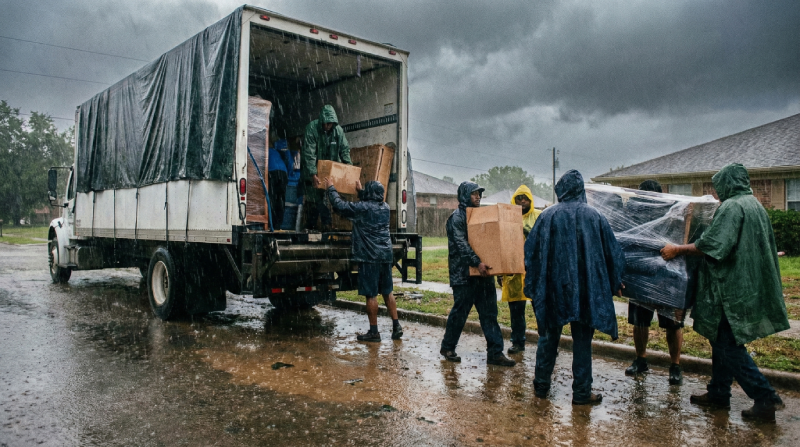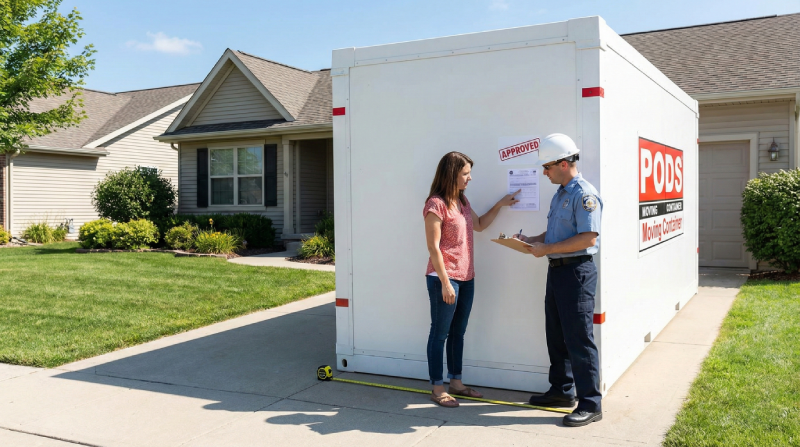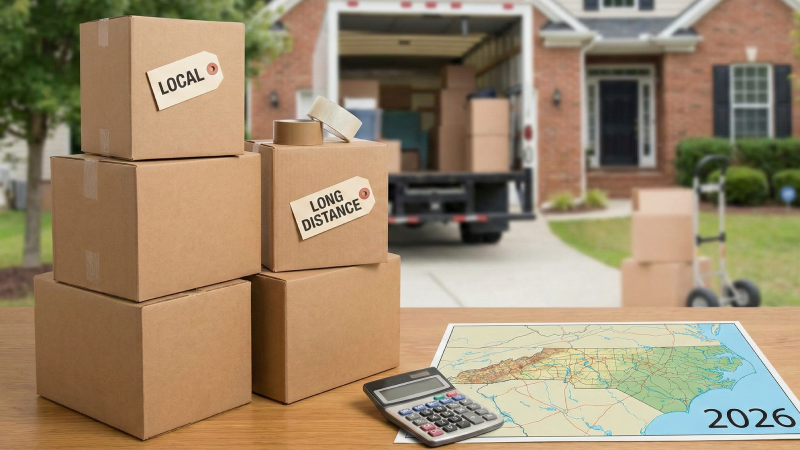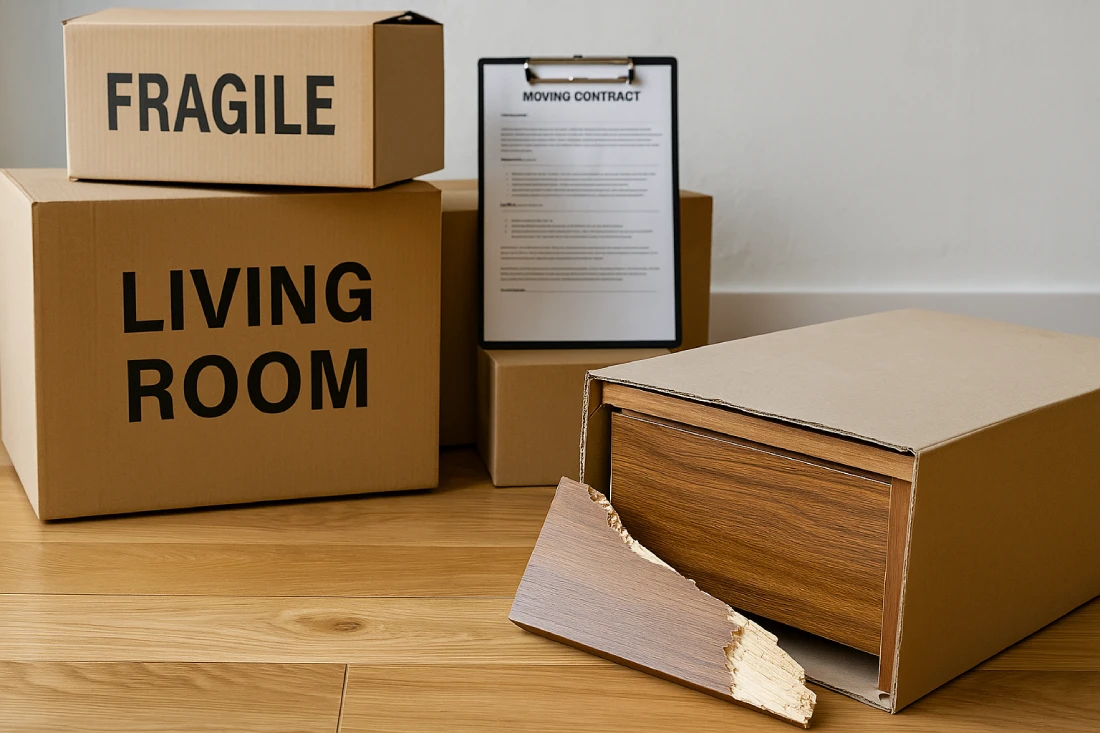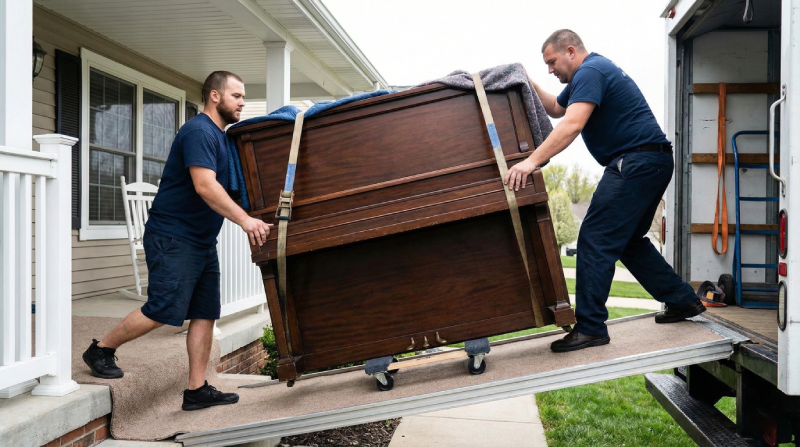Knowing how much it costs to hire a moving company can save you hundreds or thousands on your next move. Moving prices vary a lot between full-service and labor-only movers, the two main moving service options available in the market today.
This guide explains pricing, reveals hidden fees, and helps calculate costs for your situation. You'll learn the difference between paying for convenience versus labor, find which services are worth premium prices, and get practical ways to cut costs without losing quality.
This article is part of our cost-comparison series. It’s designed to help you understand how moving prices are calculated — not to advertise or list moving companies.
What Is the Cost of Hiring Movers in 2026?
The cost of movers varies widely depending on your location and needs. For local moves, prices typically range from $260 to $1,495, with the national average at $1,250 for a typical 2-3 bedroom home.
Most moving companies use an hourly pricing structure with these rates:
- $108-$125 per hour for two movers and a truck.
- Up to $200+ per hour in expensive metropolitan areas.
- $38-$75 per individual mover.
- Approximately $424 for two movers working four hours (before additional fees)
Be aware that most companies require a 2-3 hour minimum charge regardless of how quickly your move is completed. This means even a small studio apartment move could cost $216-$375 just to meet the minimum requirement.
For longer distance relocations, the pricing structure changes completely:
- Interstate moves average $4,890.
- Pricing based on weight and mileage rather than hourly rates.
Moving company base rates typically include the truck, basic equipment, and labor. However, many additional services will trigger extra charges. Understanding these baseline costs helps you compare quotes accurately and identify when pricing seems suspiciously low or unreasonably high compared to market standards.
What Factors Affect Moving Prices?
Moving company prices change based on seven factors that can double or triple your final bill. Distance is the most important factor, determining whether you'll pay hourly rates for local moves under 50 miles or weight-based pricing for long-distance relocations.
The size of the home directly impacts the number of movers needed and the hours required. Each additional bedroom typically adds 2-3 hours to the move time.
- Number of movers: Three movers cost more per hour than two, but often complete jobs faster
- Access challenges: Stairs, long carries, elevator reservations ($50-$200+ extra)
- Seasonal timing: May-September premium rates (20-30% higher than winter moves)
Standard specialty item fees
Additional services multiply costs quickly. Packing services, furniture disassembly, appliance disconnection, and temporary storage all carry separate charges that transform an affordable base rate into a budget-breaking total.
- Pianos: $200-$400 extra.
- Gun safes: $100-$500 extra.
- Hot tubs: $300-$800 extra.
Comparing Local Vs. Long-Distance Moving Costs
Comparing local and long-distance moving costs shows very different pricing structures. Local moves are charged by the hour, and long-distance relocations are priced by weight and mileage. Understanding these basic differences helps you budget accurately and avoid unexpected expenses that could derail your moving plans.
Local Moves General Costs and Times
Local moving cost calculations are simple with hourly pricing. Most companies structure their pricing with basic inclusions and standard minimums.
- $108-$125 per hour for two movers and a truck.
- 2-3 hour minimum charge regardless of actual time.
- Basic moving equipment included.
- Transportation within a 50-mile radius.
Local crews complete most moves in predictable timeframes, though actual duration varies by home size. However, be aware that stairs and long distances from the truck to the door will extend these timeframes considerably.
- One-bedroom apartment: 3-4 hours.
- Two-bedroom home: 4-6 hours.
- Three-bedroom house: 6-8 hours.
Long-Distance Moves General Costs and Times
Long-distance moving cost structures shift to weight-based pricing instead of hourly rates. These moves are calculated differently from local relocations. Moving companies calculate these rates using a combination of shipment weight, travel distance, and seasonal demand. Summer moves typically command premium prices due to higher demand.
- $0.50-$0.70 per pound for cross-country moves.
- Typical two-bedroom home: 5,000-7,000 pounds.
- Average cost for 1,000-mile move: $2,500-$4,900.
Additional costs to consider in a long-distance move
- Packing services: 25-50% increase.
- Expedited delivery: 25-50% increase.
- Guaranteed pickup dates: 25-50% increase.
Relevant Regulations
Interstate moves crossing state lines are subject to federal regulations that require licensed, insured carriers and standardized contracts. Moves within state boundaries are subject to state-specific regulations that vary significantly in terms of consumer protections and pricing transparency. For a detailed breakdown of budgeting and what to expect when moving to another state, see our guide on the subject.
How Home Size Affects What You Pay for a Move
Moving costs vary widely depending on service level and location, with pricing structured differently for local moves (hourly rates) versus long-distance relocations (weight-based pricing). Understanding these cost differences helps you budget accurately while identifying which services provide the best value for your specific moving needs.
1-Bedroom Apartments
One-bedroom apartment movers typically send two movers working 3-4 hours, totaling $324-$500 for local moves. The average cost of movers for this size includes loading 20-30 boxes and standard bedroom furniture. Studio apartments often complete in just 2-3 hours, keeping costs at the minimum charge threshold of $260-$375.
2-Bedroom Homes
The cost to move a 2-bedroom house averages $540-$750 for three movers working 5 hours. This home size typically involves 40-60 boxes plus furniture for two bedrooms, a living room, and a kitchen. Adding a third mover increases hourly rates but reduces total time by 1-2 hours, often resulting in similar or lower total costs with less physical strain on the crew.
3-Bedroom Homes
Residential movers for a 3-bedroom home use four movers for 7-8 hours, with the cost to move a 3-bedroom house ranging from $756-$1,000. These moves involve 60-80 boxes and furniture for multiple bedrooms, potentially including heavy items like home gym equipment or multiple entertainment centers. The increased crew size becomes important for efficiently handling larger furniture pieces and maintaining momentum throughout a longer workday.
4+ Bedroom Homes
Large family homes demand 4-5 movers working 8-10 hours, pushing costs to $1,080-$1,500 or more. These substantial relocations often span multiple days or require additional services like professional packing. The complexity increases with features like finished basements, home offices, and accumulated belongings from years of residence.
Townhome and Walk-Up Moves with Stairs
Stairs add significant time and cost to any move, with each flight potentially adding 30-60 minutes to total move time. Townhomes and walk-up apartments trigger stair fees of $50-$75 per flight, quickly inflating costs for third-floor units or multi-level townhomes.
Standard Moving Charges and What's Included
Moving companies offer different service levels and pricing structures, with costs varying dramatically based on your specific needs. Let's compare full-service companies to labor only movers so you can make the most economical choice for your situation.
Travel Time and Fuel
Full-service companies typically charge portal-to-portal travel time at standard hourly rates, adding 30-60 minutes to your bill. Fuel surcharges range from $50-$150, depending on distance and current gas prices, even for local moves. With labor-only movers, you'll control truck rental and fuel consumption.
Stairs and Long Carry
Stairs incur fees of $50-$75 per flight, while long carry charges apply when movers must transport items more than 75 feet from the truck to the door. These hidden moving fees can add $100-$300 to apartments with poor truck access. In the case of labor-only movers, stairs and carries will impact the total time of the move but won't trigger additional fees.
Packing Materials
Full-service movers mark up packing materials 50-100%, charging $3-$5 per box, $20-$40 per wardrobe box, and $7-$10 per roll of tape. These material costs quickly accumulate when you're paying premium prices for convenience. With labor only movers, you handle the packing, which means you can purchase materials at normal rates.
Specialty Items
Pianos add $200-$400, gun safes cost $100-$500, and grandfather clocks require $150-$300 in additional fees. Pool tables, hot tubs, and exercise equipment each trigger specialized handling charges that reflect their weight and complexity. Labor only companies normally quote the manpower needed for your move and charge a flat rate based on the number of movers needed.
Valuation and Insurance
Basic coverage at $0.60 per pound per item comes free but provides minimal protection. Full-value protection costs $100-$500+ but covers repair or replacement at current market value.
Storage and Overnight Holds
Overnight truck storage runs $100-$200 per night, while warehouse storage adds $50-$150 monthly per vault used. These costs compound quickly during delayed closings or renovation overlaps. Hybrid moves don't carry these extra fees as you're in control of the timeframes, truck rental time, and any additional storage solutions.
Is Hiring Packing Services Worth It?
Professional moving costs vary significantly based on service level, distance, and home size. Full-service companies charge $108-$125 per hour for local moves, while labor-only movers offer muscle at around $135 for two helpers. Understanding these pricing differences can help you save 40-60% on your upcoming relocation while still getting assistance.
Packing Labor and Materials
Movers that offer packing services cost $1,000 to $2,000 for a 2,000-square-foot house, including labor and materials. Professional packers typically work in teams of 2-3, completing an entire home in 6-8 hours at rates of $40-$60 per packer per hour. While this service doubles your moving costs, it provides professional-grade protection for valuables and saves 10-15 hours of personal packing time.
Getting Partial Packing Help
Selective packing services for just the kitchen or fragile items cost $200-$500, offering a middle ground between DIY and full service. This option works well for time-pressed professionals who can pack books and apparel but need help with dishes, artwork, and electronics.
How to Estimate My Moving Costs Quickly
Start your moving cost calculator by counting bedrooms and multiplying by the standard hours. Then, multiply these hours by local hourly rates for a baseline estimate. Then, add travel time, stair fees, and seasonal adjustments.
Standard Moving Times by Home Size:
- 1 bedroom = 3-4 hours.
- 2 bedrooms = 5 hours.
- 3 bedrooms = 7-8 hours.
Additional Factors to Consider When Budgeting Your Next Move
For a more accurate moving quote, inventory your large furniture pieces and boxes. This detailed approach typically produces estimates within 10-15% of actual costs, giving you a reliable budget foundation. Labor-only movers can simplify this calculation. You pay only for labor hours at transparent rates around $135 for two movers. This eliminates truck fees, travel charges, and equipment markups that inflate traditional moving company estimates.
Regardless of the option you choose, keep in mind the following considerations:
- Hourly rates: $108-$125.
- Travel time: Add 1 hour.
- Stairs: $75 per flight.
- Peak season: Add 20%.
- Major appliances: 30 minutes each.
- Stairs: 15 minutes per flight.
- Specialty items: Add appropriate fees.
- Packing services: Include if needed.
Lowering Your Moving Costs Without Adding Risk
Reduce your average moving costs by 30-50% by choosing off-peak moving dates between October and April when demand drops and companies offer discounts. Book your move for mid-month and mid-week when rates fall 10-20% below weekend prices.
Pack everything yourself to save $1,000-$2,000. You can find free moving supplies instead of buying expensive ones.
Money-Saving Packing Strategies
Downsize before moving by selling or donating items you haven't used in the past year. Every 500 pounds eliminated saves $250-$350 on long-distance moves. Get multiple quotes and negotiate. Moving companies often match competitors' prices or offer incentives during slow periods.
- Get free boxes from liquor stores and recycling centers.
- Use towels and linens as padding for fragile items.
- Borrow or rent moving equipment instead of buying.
Additional Cost-Cutting Measures
The most effective strategy combines DIY packing, off-peak scheduling, and labor-only movers to achieve professional results at budget-friendly prices without sacrificing safety or efficiency.
- Consider labor-only movers where you can choose the right moving truck size for you and the rental time.
- Ask about potential discounts for flexible delivery dates.
- See if friends can help with smaller items.
What Type of Moving Help Should I Hire?
The main difference between traditional moving companies and labor-only movers is control and cost. Full-service movers charge $108-$125 per hour and handle everything, including truck costs, equipment fees, and company overhead. Labor-only movers cost around $135 for two helpers and focus purely on the physical work, allowing you to save 40-60% overall.
Labor-only movers offer transparent pricing, scheduling flexibility, and complete control over the pace of your move. While you'll need to rent a truck separately ($30-$150), the overall savings are substantial.
Your choice depends on priorities: choose full-service for convenience, or labor-only for the perfect balance of affordability and expertise while maintaining control. Understanding these cost structures helps you execute a successful move without breaking your budget or your back.
FAQs
What are the hidden costs of a 2-hour minimum?
Beyond the base rate, expect travel time charges, fuel surcharges averaging $75, stair fees of $50-$75 per flight, and potential charges for wrapping materials or equipment use. These hidden moving fees can add $200-$400 to a simple apartment move.
How much does a moving company charge to move a 1,500 sq-ft house?
Local moves for a 1,500-square-foot house range from $384-$793, while long-distance relocations cost $1,400-$8,000, depending on the distance and services included.
What does it cost the average person to move?
The national average sits at $1,250 for local moves and $4,890 for long-distance relocations, though individual costs vary significantly based on home size and services selected.
Should I tip movers?
Standard tipping runs $20-$40 per mover for local moves or 5-10% of the total cost for exceptional service. For multi-day moves, tip daily rather than waiting until completion.
Do movers move plants?
No, most professional moving companies won't transport plants due to liability concerns, state agricultural regulations, and the risk of damage during transit. For detailed instructions on safely packing and transporting your plants, see our complete guide on packing plants for moving.





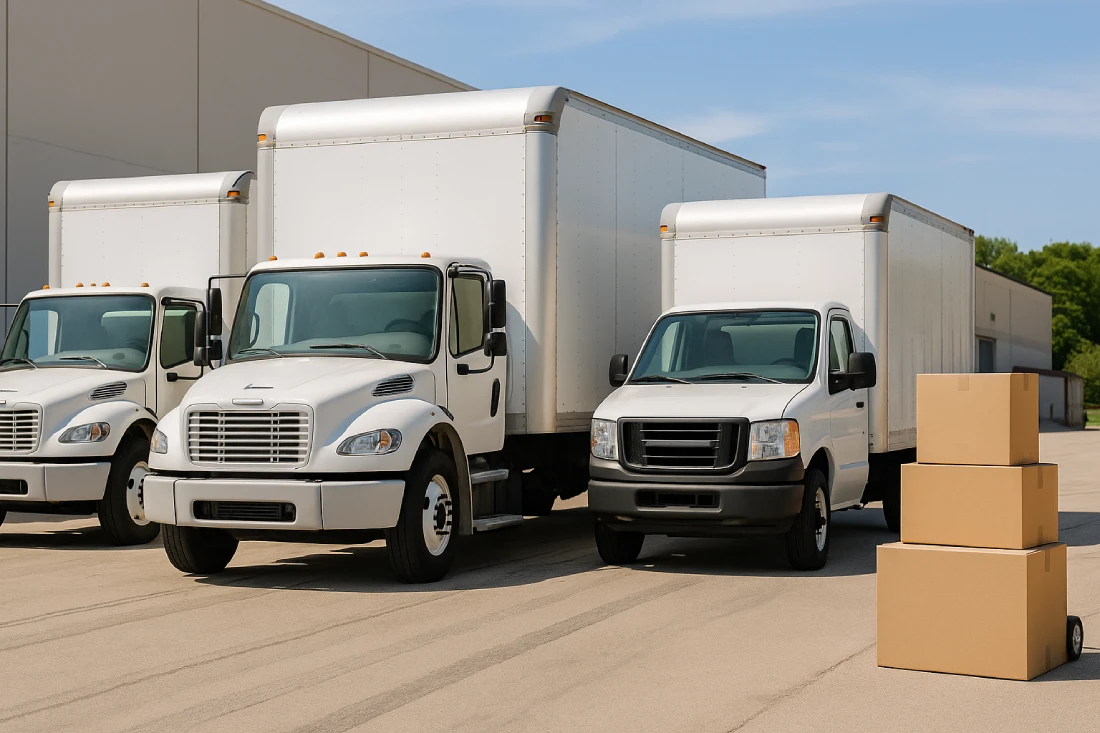
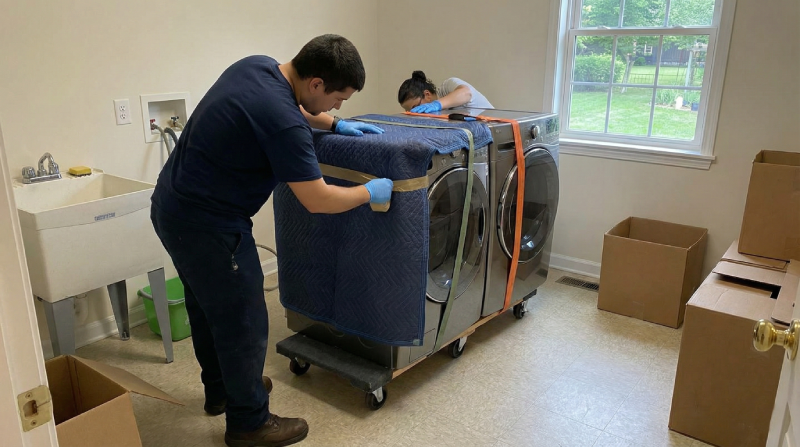
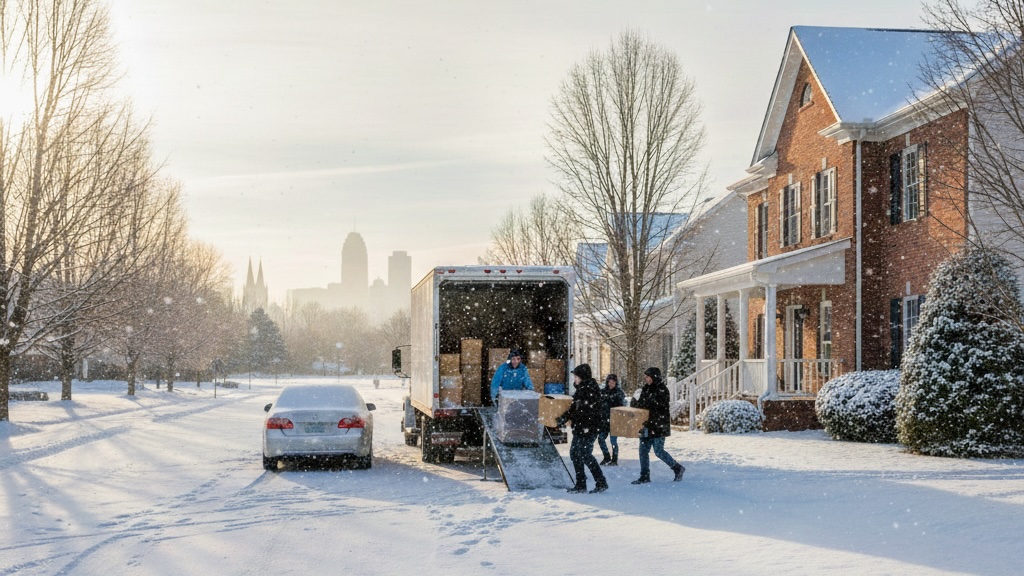



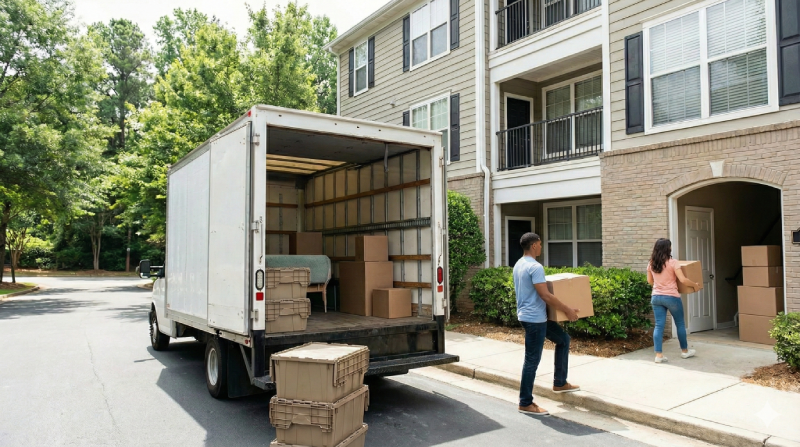








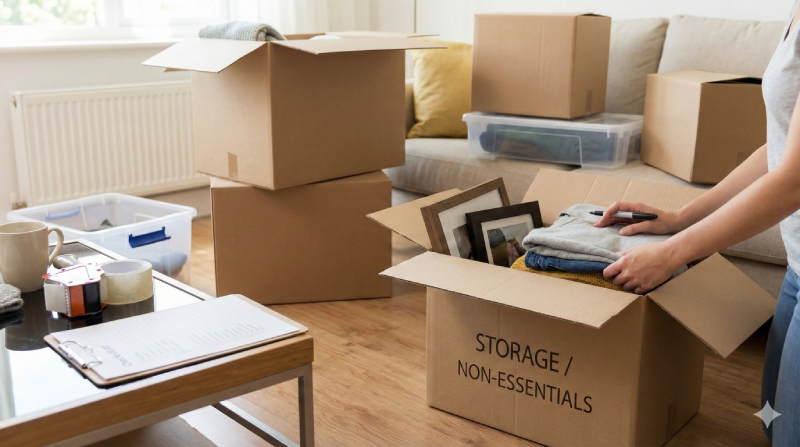
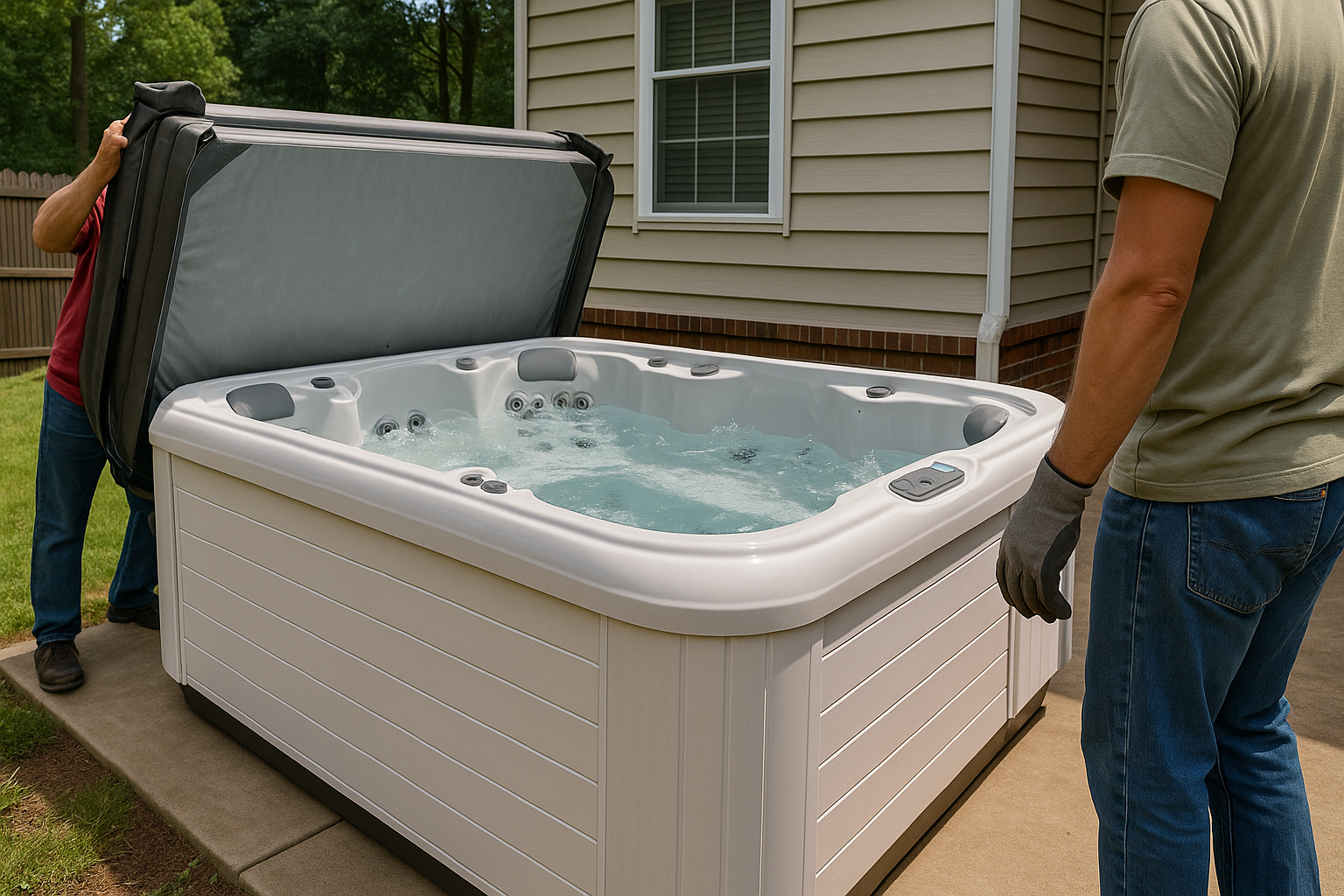





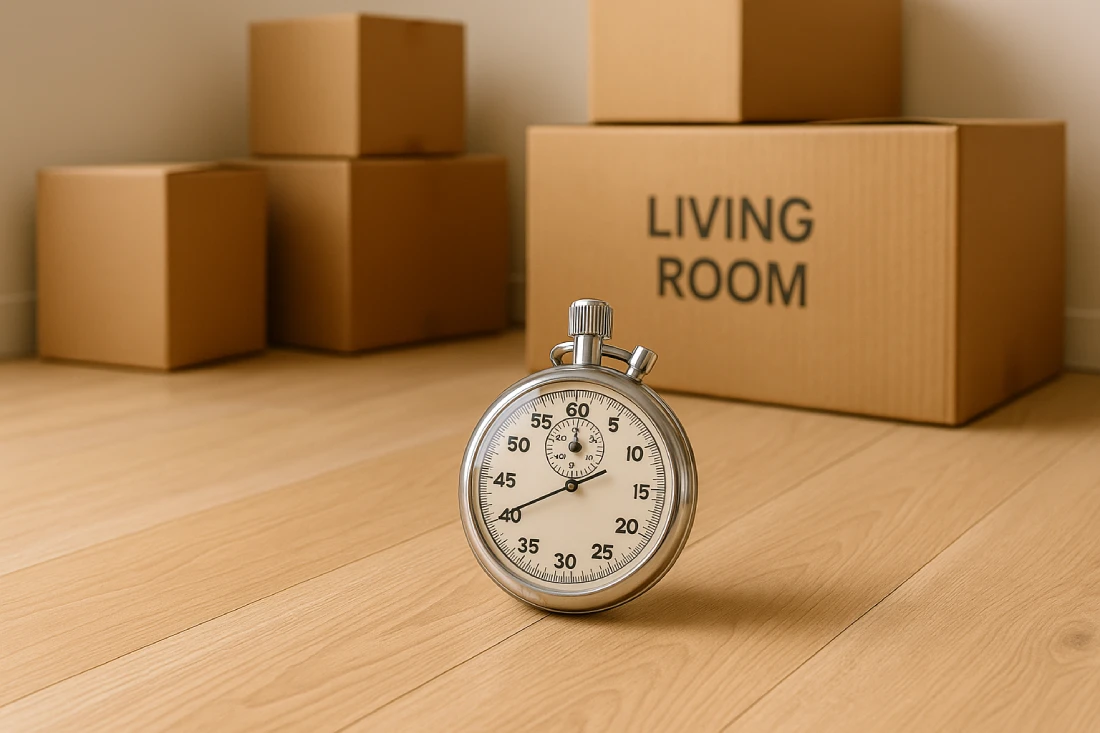





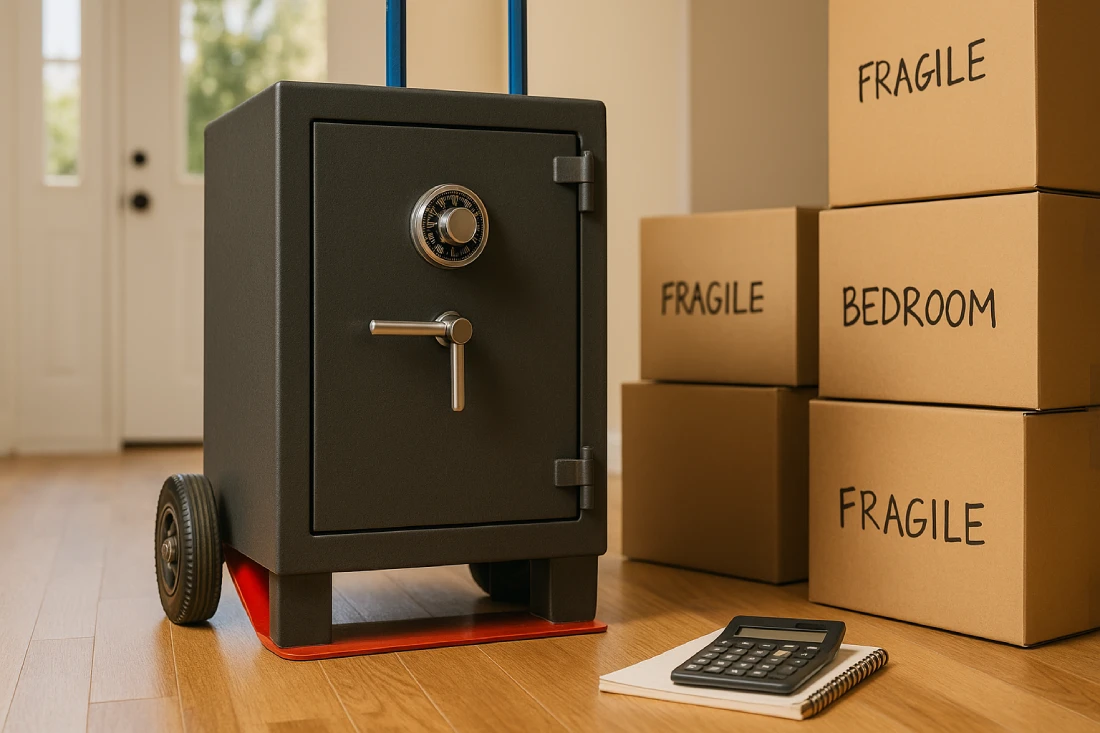











.webp)



